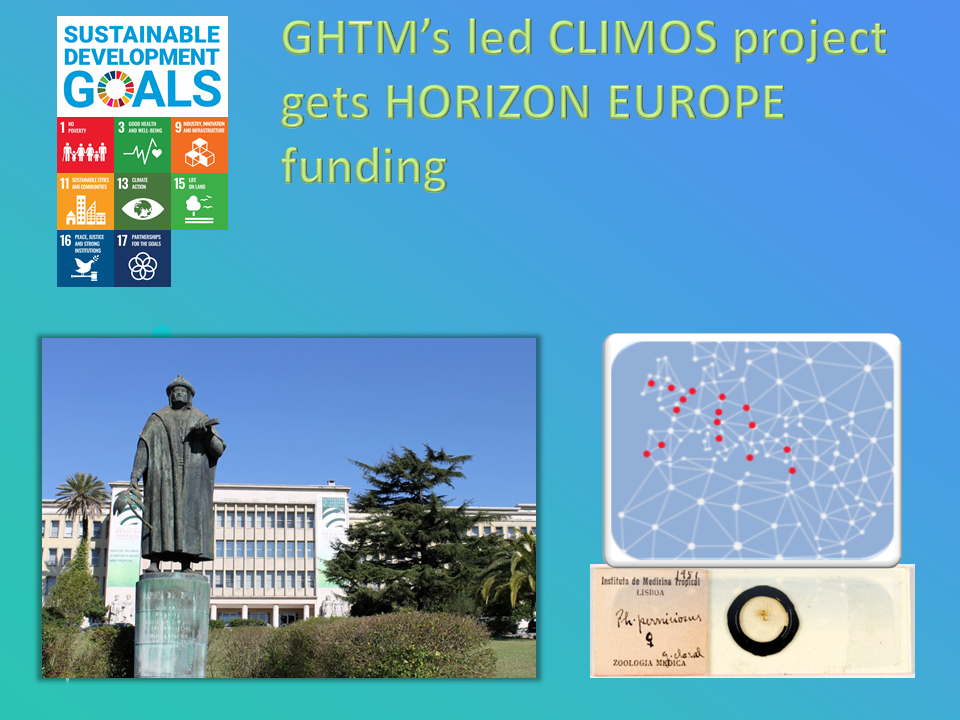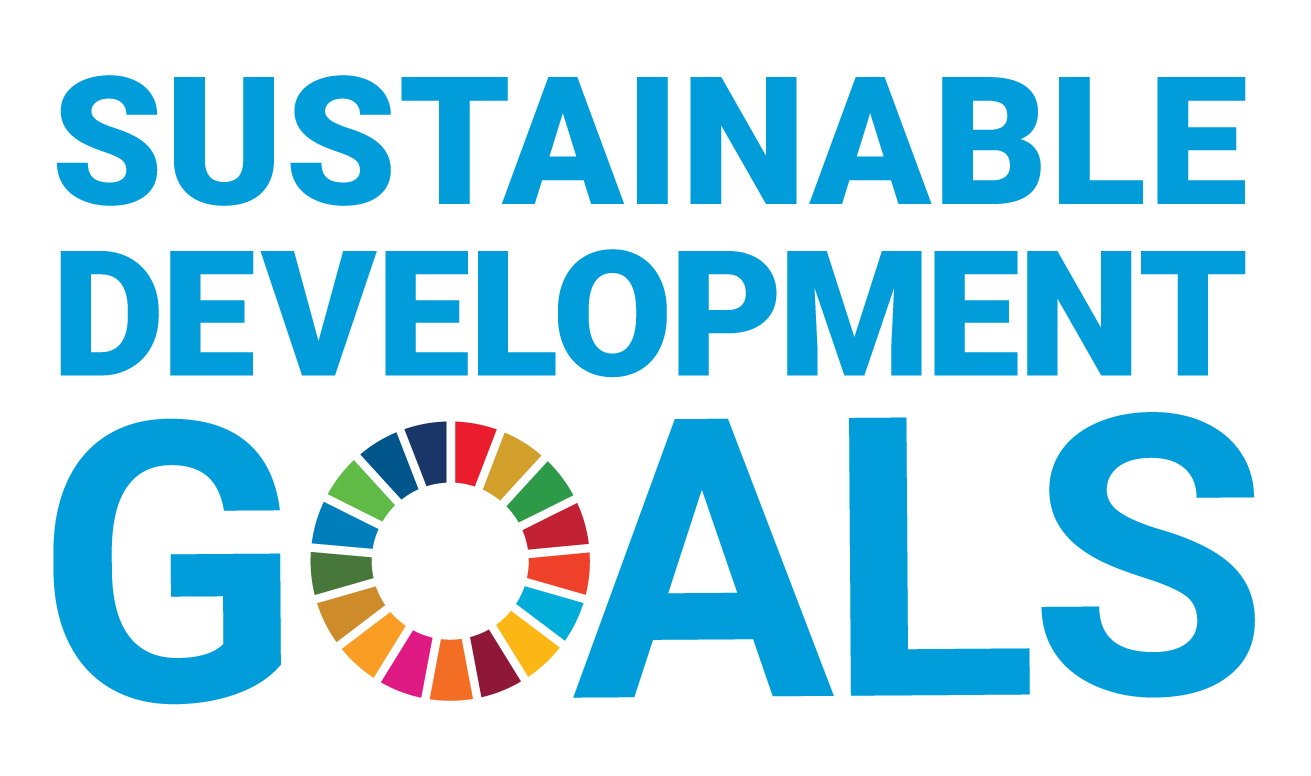The project “CLIMOS: Climate Monitoring and Decision Support Framework for Sand Fly-borne Diseases Detection and Mitigation with COST-benefit and Climate-policy Measures” was approved for European funding.
It is the first time that GHTM | IHMT | NOVA [Global Health and Tropical Medicine R&D Centre of the Institute of Hygiene and Tropical Medicine, a faculty of NOVA University Lisbon] leads a project of Horizon Europe, becoming one of the few achieving that in Portugal.
Horizon Europe, the ninth European Research and Innovation Framework programme (2021-2027), is an EU tool aiming to promote Europe’s recovery thru research and innovation. It has several clusters, being «Health» the Cluster 1:
«Horizon Europe – Work Programme 2021-2022 Health».
This cluster work programme aims to arrive to six destinations:
Destination 1 – Staying healthy in a rapidly changing society: Citizens of all ages stay healthy and independent in a rapidly changing society thanks to healthier lifestyles and behaviours, healthier diets, healthier environments, improved evidence-based health policies, and more effective solutions for health promotion and disease prevention.
Destination 2 – Living and working in a health-promoting environment: Living and working environments are health-promoting and sustainable thanks to better understanding of environmental, occupational, social and economic determinants of health.
Destination 3 – Tackling diseases and reducing disease burden: Health care providers are able to better tackle and manage diseases (infectious diseases, including poverty-related and neglected diseases, non-communicable and rare diseases) and reduce the disease burden on patients effectively thanks to better understanding and treatment of diseases, more effective and innovative health technologies, better ability and preparedness to manage epidemic outbreaks and improved patient safety.
Destination 4 – Ensuring access to innovative, sustainable and high-quality health care: Health care systems provide equal access to innovative, sustainable and high-quality health care thanks to the development and uptake of safe, cost-effective and people-centred solutions, with a focus on population health, health systems resilience, as well as improved evidence-based health policies.
Destination 5 – Unlocking the full potential of new tools, technologies and digital solutions for a healthy society: Health technologies, new tools and digital solutions are applied effectively thanks to their inclusive, secure and ethical development, delivery, integration and deployment in health policies and health care systems.
Destination 6 – Maintaining an innovative, sustainable and globally competitive health-related industry: EU health industry is innovative, sustainable and globally competitive thanks to improved up-take of breakthrough technologies and innovations, which makes the EU with its Member States more resilient and less dependent from imports with regard to the access to and supply of critical health technologies.
The CLIMOS Project (No: 101057690), submitted to the European Commission’s Environmental Health Call «Health impacts of climate change, costs and benefits of action and inaction» (HORIZON-HLTH-2021-ENVHLTH-02-03) of the 2nd destination, was one of the successful proposals, according to the released results of the first calls of the Horizon Europe Health Cluster, whose deadline was 21st of September 2021. Of the 130 Portuguese proposals submitted, 29 were approved for funding, corresponding to a success rate of 22.3% and a total funding of €18.3M.
The project, which will last for 36 months, is a consortium composed of 29 partners from 16 countries: Portugal, Austria, Belgium, Czech Republic, France, Germany, Greece, Ireland, Israel, Italy, Netherlands, Serbia, Slovenia, Spain, Turkey and United Kingdom; coordinated by Prof. Carla Maia, researcher at GHTM’s Vector-borne Diseases and Pathogens Research Group.
What is the CLIMOS project?
The CLIMOS project aims to assist the mitigation of the emergence, transmission and dissemination of zoonotic pathogens, transmitted by vectors induced by Climate Change, based on the approaches of Eco-health and One Health.
These objectives will be achieved by quantifying the climatic and environmental factors of phlebotome populations and infectious agents transmitted by these insects throughout Europe.
Phlebotomes, aka sandflies (Diptera: Psychodidae), are the natural vectors of Leishmania spp., Kinetoplastida (Trypanosomatidae) and phleboviruses (Bunyavirales: Phenuiviridae) in Mediterranean countries. Leishmania infantum and phleboviruses are widespread in the region, while L. major and L. tropica are limited to Northern Africa and the Near East. L. infantum causes zoonotic visceral and cutaneous leishmaniasis and L. major and L. tropica zoonotic and anthroponotic cutaneous leishmaniasis, respectively. Phleboviruses associated with human disease usually cause a short, mild febrile illness known as ‘three-day fever’. However, the Toscana virus (TOSV) can cause a severe, and occasionally fatal, neuro-invasive disease.
Even though the public health impacts of sandfly-borne infections are highest in countries on the southern and eastern shores of the Mediterranean, they are becoming a problem in Europe resulting from Climate Change or collective behaviours that influence vectors’ dissemination and numbers. New infection centres, in more northerly areas, might be established, for example, by dogs infected with L. infantum associated with phlebotome vectors progressively moving northwards. In southern European countries, where the vectors live, there is the danger of L. tropica spreading, particularly among refugees and migrants from endemic regions.
There are no effective vaccines to inhibit phlebotome-borne infections and vector control is limited by the problems related with a non-aquatic, terrestrial breeding insect which is not vulnerable to large-scale insecticidal treatment programmes. Europe has not established a continent-wide monitoring or control structures for sandflies and the pathogens they carry. Additionally, the inventory of diseases under EU surveillance does not include TOSV infections or human leishmaniasis.
To tackle these problems, the CLIMOS project intends to generate models able to predict sandfly distribution and sandfly-borne diseases relevant for humans and animals, to observe Climate Change consequences on those models, and to manufacture easy/quick-use diagnostic kits.
For this mission, an open-access interactive online platform will be developed containing up-to-date data on the geographical distribution of vector phlebotomine species and the pathogens they carry, and on climate and environmental monitoring, which will be incorporated into mathematical modelling algorithms. The outputs of the later will feed an educational interface that will enable stakeholders – social, environmental, and financial organizations, public bodies, or policy makers – to make mitigation decisions based on scientific evidence.
It is expected that CLIMOS outcomes will provide an early warning system and support structures for more accurate modelling of climate, health and prognosis of infection risk, which should encompass socio-economic analysis and risk assessments to support decision-makers by providing social and cost-benefit appraisals.


[…] GHTM’s led CLIMOS project gets HORIZON EUROPE funding […]